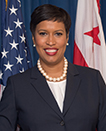Washington, DC
District Announces New Menstrual Health Education Standards for DC Public and Charter Schools
(Washington, DC) – Today, the Office of the State Superintendent of Education (OSSE) announced the rollout of the new Menstrual Health Education Standards to take effect for all DC Public Schools (DCPS) and public charter school students regardless of gender in the 2023-24 school year. With the release of the new standards, the District of Columbia is now the first jurisdiction in the nation with specific, statewide menstrual health education standards.
“Part of making sure our students have what they need to be healthy and happy is making sure they have access to resources, products, and accurate information about their health and development,” said Mayor Bowser. “I’m grateful for the experts who worked to develop the Menstrual Health Education Standards, and I’m grateful for our educators who empower our students with the tools they need to thrive each and every day.”
The new Menstrual Health Education Standards are categorized by grade and focused on outcomes that support age- and grade-appropriate learning.
Upper elementary grades will focus on building a functional understanding of the menstruation cycle, physical and emotional changes experienced during the menstruation cycle, communication with trusted adults and peers, and product accessibility. Grades 6-8 will focus on the menstrual cycle, personal decision-making, and analyzing influences (period stigma). Grades 9-12 will focus on menstrual health irregularities, independent management of personal period health, community health implications of period stigma, and inequities with product access.
These standards align with the Expanding Student Access to Period Products Act of 2022 (DC Law 24-92), which outlines requirements and strategies to improve menstrual health education and student access to period products.
As part of the standards rollout, OSSE will host the first DC Menstrual Health Education Day on Tuesday, May 30. Menstrual Health Education Day includes a series of trainings to bring awareness to the supplemental health standards and to support school leaders, health education teachers, and school operations staff to ensure student access to free period products in schools.
“A comprehensive health education curriculum is essential to increasing student agency and health literacy and to creating inclusive school spaces. These standards provide a clear, skill-based, and age-appropriate approach to this essential health topic and renew the District’s commitment to comprehensive health education,” said State Superintendent Dr. Christina Grant. “The new Menstrual Health Education Standards also aims to empower our students to become active participants in their own health while maintaining dignity and respect for fellow students as they grow and develop.”
To develop the new Menstrual Health Education Standards, OSSE collaborated with various governmental and non-governmental partners on model practices and approaches to drafting standards for menstrual health education at all grade levels— beginning in upper elementary and across the various strands identified by the 2016 DC Health Education Standards. In Fall 2022, OSSE developed draft standards and sought feedback from local and national governmental and non-governmental partners. In January 2023, OSSE presented the draft standards to the State Board of Education (SBOE) and released the standards for public comment. SBOE approved the new standards in March.
To learn more about the Menstrual Health Education Standards, visit OSSE’s website.

